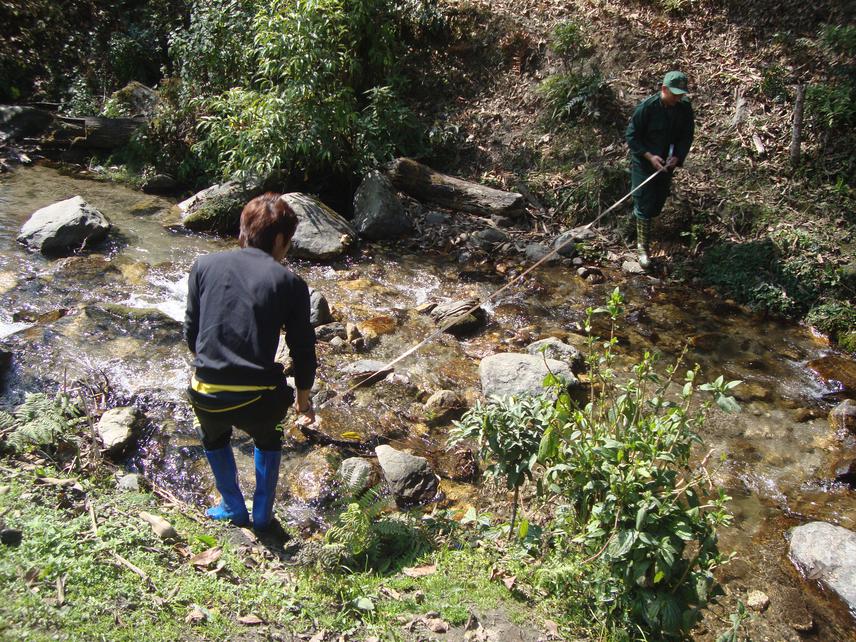Kinley Wangchuk
Identify and investigate the diversity of macroinvertebrate in individual streams and to assess the water quality of different streams by the equation of Family Biotic Index.

Punatsangchhu is one of the major rivers of Bhutan originating from the snowcapped mountains of Gasa Dzongkhag. The whole Dzongkhag falls under the jurisdiction of Jigme Dorji National Park (JDNP). The headwaters of the Punatsangchu comprise of two major tributaries namely the Pho Chhu and Mo Chhu (male and female rivers respectively). The actual source of Pho Chhu is from the glacial lakes in Lunana while it is also fed by many streams that drains down into the basin. Similarly, the Mo Chhu originates from Laya and is joined by many wadeable streams along its basin.
Macroinvertebrates are animals without a backbone that can be seen with the naked eye. These include crustaceans and worms but most are aquatic insects. Beetles, caddisflies, stoneflies, mayflies, hellgrammites, dragonflies, true flies, and some moths are among the groups of insects represented in stream. Habitat of these animals includes streams, rivers, creeks, wetlands, dams and lakes or even drains. Rivers are ecosystems of great ecological value with a rich fauna like macroinvertebrate, which has an important link in the food web between the producers (leaves, algae) and higher consumers such as fish. The fauna consists of communities with a complex structure and high biological value. This group of great diversity and ecological importance consists of invertebrates of macroscopic size, normally more than 1 mm, living permanently or during certain periods of life cycle linked to the aquatic environment.
The protection of watershed in the upstream is crucial for survival of these animals as well the life of our society. The survival of these animals is depended on the quality of water and threats. So, maintaining water quality, both sanitary and environmentally, is important, since it depends largely on the conservation of these animals (Fernandez-Diaz, 2003).
Macroinvertebrate are important components of biodiversity in the headwater stream ecosystem which is impacted by different environmental variables and human interference. The study is going to carry out within and outside Jigme Dorji National Park to investigate the macroinvertebrate diversity and to assess the water quality of different streams by using Family Biotic Index (FBI) and macroinvertebrates. Macroinvertebrate are going to sample from 32 reaches of four streams. Samples are going to collect using D-frame net of 0.5 m x 0.5 m and 500 µm mesh size. The specimens are going to store in 4% formaldehyde solution in the field and take to the Laboratory and identified. The environmental variables and Global Position System coordinates will be recorded from 32 reaches of the study sites.